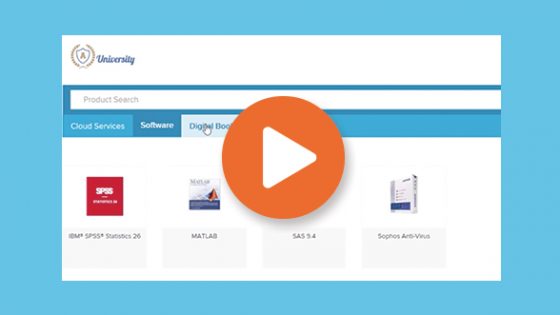Education has been going digital for decades. This transformation has accelerated and taken on new urgency this year, as schools were forced to transition courses online due to COVID-19. According to an EDUCAUSE report released this summer, digital tools are only going to grow in importance within education over the coming years.
Given this trend, it’s a good time to reassess one digital solution available to education – eBooks. These have existed and been used to varying degrees in education for many years, but they have yet to disrupt the industry the way early proponents of the technology predicted. As far back as 2008, EDUCAUSE was questioning why eBooks always seem to be ‘just a year or two away’ from really rising to prominence in education.
However, with the rise of remote education and schools’ increased reliance on digital solutions, it’s worth revisiting the question of whether it’s (finally) time for the education industry to truly embrace eBooks. Here are a few reasons why it might be.
eBook Solutions From Kivuto
Kivuto streamlines the management, delivery, and consumption of eBooks at academic institutions. Find out how.
Ideal for Online Learning
The COVID-19 pandemic forced a fundamental rethink of how education is delivered. Moving courses online and making course resources accessible from off campus required schools to put more trust in digital solutions. Why shouldn’t eBooks be among these solutions?
In the context of the COVID-19 crisis, eBooks are an ideal replacement for traditional print texts. With school bookstores closed and many students hesitant to visit public indoor spaces, how are they to acquire the books they need for school? The most obvious answer is to offer these books in digital form so students can download them from the safety of their homes.
This is similar to the approach many schools have taken with course-required software. Licensing agreements for lab-use software were expanded to allow for home use, allowing students and faculty to download the software they need to their personal devices. Offering course-required books in digital format would provide similar benefits.
With multiple vaccines on the horizon and many school facilities open for business again, one could argue that this moment has already passed. But that would be shortsighted. Because even after the pandemic passes, the demand for online education isn’t likely to go away. eBooks can enable academic institutions to better support off-campus learners in the future.
Print Has Lost Prominence
Another sign that it’s time for academia to embrace eBooks lies in the relationship between students and traditional print materials – a relationship that has changed dramatically over recent decades.
A 2019 article in the Atlantic shone a spotlight on the declining relevance of print texts at academic institutions. Even the role of school libraries has changed – they remain essential, but more as quiet study spaces than go-to sources for research material. Institutions around the world are seeing book checkouts from their libraries decline sharply despite rising enrollment.
It’s important to note that this applies only to print books, not to books in general. Because while fewer students are physically checking out books, more and more students are taking advantage of digital alternatives. As the Atlantic put it: “Where students or faculty once pulled volumes off the shelf to scan a table of contents or index, grasp a thesis by reading an introduction, check a reference, or trace a footnote, today they consult the library’s swiftly expanding ebook collection.”
This makes sense. For one thing, the searchable nature of eBooks makes them ideal for research – it’s easier to input a search term and click on a link than to check an index and flip to a page. And preferences have evolved over time. Today’s students are digital natives, more accustomed to operating apps on phones than browsing bookshelves. It’s only natural that this is reflected in the way they consume information.
The Technology’s All Grown Up
That 2008 article by EDUCAUSE pointed to a few reasons why eBooks hadn’t taken off in education at the time. But the technology has made significant strides since then, to the point where many of these deterring factors no longer apply.
IP protection was one issue EDUCAUSE identified, and it remains a big concern today. However, many platforms now include sophisticated safeguards against unauthorized reproduction and distribution of eBooks. Advanced digital rights management (DRM) also give content owners full control over how their eBooks are used and how much (if any) content from them can be printed, copied, or shared.
The lack of a really good reading app was another reason EDUCAUSE highlighted for schools’ reluctance to embrace eBooks. Now, though, there are many fine options available – including some built specifically for use in education, like the Texidium Reader. In addition to providing a smooth reading experience, Texidium supports interactive features that foster collaboration between students and educators, like the ability to share notes and assign readings online.
EDUCAUSE also pointed to simple preferences, suggesting that students who grew up reading off pages may balk at reading off a screen. However, as established, reading habits have changed. Today’s students grew up reading off screens and are more accustomed to conducting research digitally than from print sources.
It would seem that students, at least, are ready to embrace the use of eBooks in education. The question is whether schools are as well yet.













